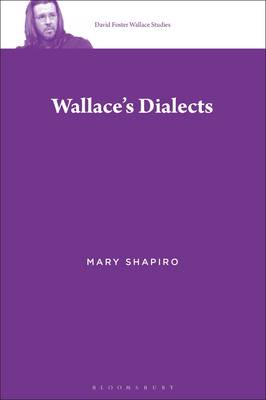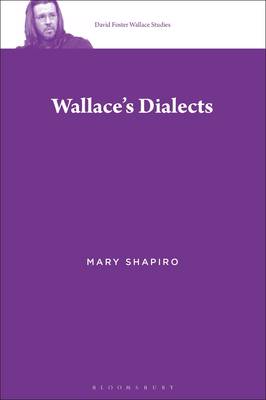
- Afhalen na 1 uur in een winkel met voorraad
- Gratis thuislevering in België vanaf € 30
- Ruim aanbod met 7 miljoen producten
- Afhalen na 1 uur in een winkel met voorraad
- Gratis thuislevering in België vanaf € 30
- Ruim aanbod met 7 miljoen producten
Zoeken
€ 228,95
+ 457 punten
Uitvoering
Omschrijving
Mary Shapiro explores the use of regional and ethnic dialects in the works of David Foster Wallace, not just as a device used to add realism to dialogue, but as a vehicle for important social commentary about the role language plays in our daily lives, how we express personal identity, and how we navigate social relationships.
Wallace's Dialects straddles the fields of linguistic criticism and folk linguistics, considering which linguistic variables of Jewish-American English, African-American English, Midwestern, Southern, and Boston regional dialects were salient enough for Wallace to represent, and how he showed the intersectionality of these with gender and social class. Wallace's own use of language is examined with respect to how it encodes his identity as a white, male, economically privileged Midwesterner, while also foregrounding characteristic and distinctive idiolect features that allowed him to connect to readers across implied social boundaries.Specificaties
Betrokkenen
- Auteur(s):
- Uitgeverij:
Inhoud
- Aantal bladzijden:
- 240
- Taal:
- Engels
- Reeks:
- Reeksnummer:
- nr. 3
Eigenschappen
- Productcode (EAN):
- 9781501348471
- Verschijningsdatum:
- 14/05/2020
- Uitvoering:
- Hardcover
- Formaat:
- Genaaid
- Afmetingen:
- 140 mm x 216 mm
- Gewicht:
- 412 g

Alleen bij Standaard Boekhandel
+ 457 punten op je klantenkaart van Standaard Boekhandel
Beoordelingen
We publiceren alleen reviews die voldoen aan de voorwaarden voor reviews. Bekijk onze voorwaarden voor reviews.








